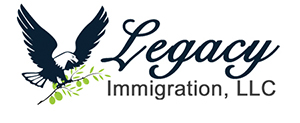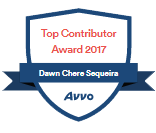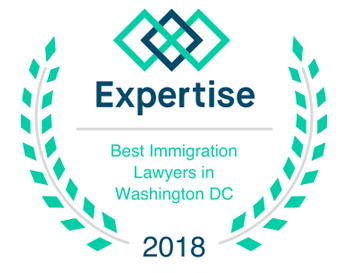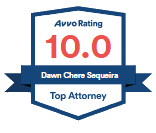EB-1A Extraordinary Ability

The First employment-based preference (EB-1A) is available to foreign nationals of “extraordinary ability.” The regulations at 8 C.F.R. §204.5(h)(2) define “extraordinary ability” as “a level of expertise indicating that the individual is one of that small percentage who has risen to the very top of the field of endeavor.”
What Are the Benefits of the EB-1A Category?
The EB-1A status is highly sought after for many reasons. First, no offer of employment is required. This means that an employer is not required to sponsor the foreign national. Like the EB-2 National Interest Waiver, the foreign national can self-petition.
Second, the EB-1A category is exempt from the preference-based system. This means that a foreign national of any country has a visa immediately available. If the foreign national is in the United States, he can file his/her green card at the same time he/she files the I-140. If the foreign national is outside of the U.S., once the I-140 is approved, he/she can immediately consular process for an immigrant visa. Shortly after arriving in the United States, the foreign national will receive his/her green card in the mail.
Third, you can prove extraordinary ability in the sciences, arts, education, business or athletics. This requirement is a blessing and a curse. It is crucial to categorize extraordinary ability into one of these categories, otherwise the case will be denied.
Fourth, unlike the EB-2 Advanced Degree category, like the EB-2 National Interest Waiver no labor certification (PERM) is required. This avoids the hassle of dealing with the Department of Labor (DOL) as well as the extended time associated with the PERM process (prevailing wage determination, advertising, and certification of Form 9089).
What Are the Eligibility Requirements of the EB-1A Category?
The EB-1A also has strict requirements. First, the extraordinary ability must be in the sciences, arts, education, business or athletics. Second, you must prove that you will continue work in the field of extraordinary ability. Third, your work will substantially benefit (prospectively) the United States. Fourth, you must prove “sustained national or international acclaim” and possess “achievements that have been recognized in the field of expertise.”
“Sustained national or international acclaim” can be either a one-time achievement such as a major international award (e.g. Nobel Prize, Grammy, Oscar, Golden Globe, Emmy) or at least three (3) of the following:
- Receipt of lesser nationally or internationally recognized prizes or awards
- Membership in an association in the field which requires outstanding achievement of its members AND as judged by recognized national or international experts (usually membership is by sponsorship)
- Published material about the person in professional or major trade publications or other major media
- Participation as a judge of the work of others
- Evidence of original scientific, scholastic, artistic, athletic or business-related contributions of major significance
- Authorship of scholarly books or articles in the field
- Artistic exhibitions or showcases
- Performance in a leading or cultural role for organizations or establishments that have a distinguished reputation
- High salary or remuneration in relation to others in the field
- Commercial success in the performing arts
If you do not meet at least three of the above, then you may also submit “comparable evidence,” which is especially helpful when some of the above do not apply. For instance, if you are in the scientific field, then “artistic exhibitions or showcases” may not apply.
How Will USCIS Examine My EB-1A Application?
Often clients are eager to proceed with the EB-1A because they meet at least three of the ten criteria. During the consultation, we explain the new two-part test that USCIS uses to evaluate EB-1A petitions.
How USCIS will evaluate your application is based on the controlling case law on EB-1A is a 9th Circuit Court of Appeals case, “Kazarian v. USCIS”. On August 18, 2010, the United States Citizenship and Immigration Services issued a policy memo that details a two-part test to prove EB-1A cases.
- This first part of the test is to prove that you meet at least three of the above-mentioned criteria (though more is preferable). Even proving all ten of the criteria is not enough to obtain an approved. Only after USCIS determines that you met at least 3/10 of the criteria will it move onto the second part of the two-part test.
- The second part of the test is passing a “final merits determination” that you are extraordinary. USCIS has not defined “final merits determination,” but previous cases indicate that the USCIS will examine: 1) that the foreign national has “a level of expertise indicating that the he or she is one of the small percentage who has risen to the very top of his/her field of endeavor”; and 2) that the foreign national has “sustained national or international acclaim and that his or her achievements have been recognized in the field of expertise.”
When USCIS is determining whether you meet each of the criteria, it evaluates the evidence in terms of whether it is indicative of or consistent with sustained national or international acclaim. For example, if you meet the criterion of “participation as a judge of the work of others,” USCIS will look to see if your participation as a judge required extraordinary ability.
If you believe that you have a small chance of qualifying for an EB-1A petition, please give us a call. It is really only during the in-person consultation and/or subsequent meetings that we come across information that helps us win our cases.
How We Can Help
- We offer comprehensive services for all EB-1A applicants. This means that we prepare all of the relevant forms, assist clients to prepare letters of recommendation, prepare a thorough legal-based attorney memorandum, and extraordinary ability “declaration” to be signed by the applicant.
- Due to the extensive amount of legal knowledge required for EB-1 petitions, only an attorney will work on the application (no law clerks, paralegals, or legal assistants).
- We strategize with the client how to properly define “the field of endeavor” keeping in mind that USCIS is prone to defining the field of endeavor too narrowly.
- We work with our clients to gather key information that assists us in proving that our client has received “international recognition as outstanding in their field.”
- We help the client come up with “comparable evidence” if the client does not meet at least three of the ten criteria.
- When applicable, we obtain opinions from experts in the field who attest to our client’s international recognition.
- We prepare the green card applications, including work authorization and advance parole for the primary applicant and dependents.
Contact Us
Please give us a call to discuss your case. In-person consultations are available Monday through Friday from 8:00 am to 8:00 pm and Saturdays from 8:00 am to 5:00 pm. Please call our office at 301-529-1912 , text us, submit a request for consultation form below.
Please be sure to provide a timeline of events along with details of your entire immigration history.









